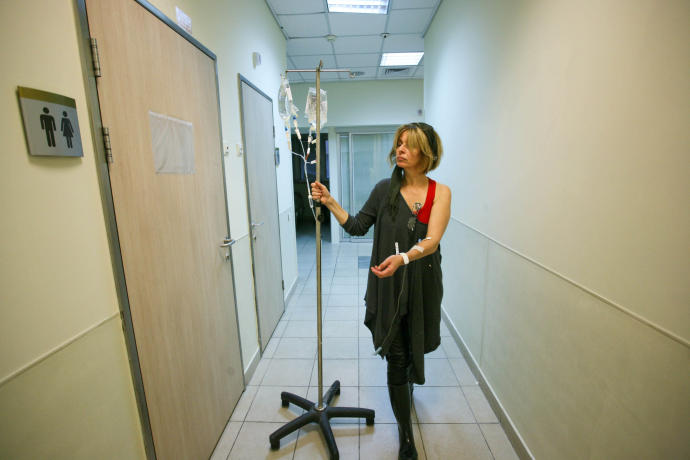Israeli biotech company Cannabotech reported on Monday the results of a cell model study conducted by Hadassah Medical Center physicians examining the efficacy of CannaboBreast products intended for treating breast cancer with drug protocols: chemotherapy, biological and hormonal. The findings claim the products show up to a sixfold improvement in killing cancer cells over the existing treatment.
Cannabotech develops medical products based on cannabis and fungal extracts. According to the study's results, the composition of cannabinoids in combination with standard chemotherapy improved the effectiveness of killing cancer cells by up to six times compared to existing treatment (from 10% mortality to 60% mortality of cancer cells).
The experiment showed that in addition to the ability to increase the effectiveness of existing treatments, it may be possible to achieve increased efficacy of killing breast cancer cells while significantly reducing chemotherapy doses, which is also expected to dramatically reduce side effects and provide healing for more patients who currently cannot undergo conventional treatment due to the side effects.

“This is a significant milestone in Cannabotech's growth to becoming a leader in integrative medicine," CEO Elchanan Shaked said. "The integrative products developed by Cannabotech are intended for use in combination with chemotherapy treatment in several cancers and are expected to be launched in Israel and the US in the second half of 2022, while the company's goal is to define a new standard for the medical cannabis industry."
Prof. Tami Peretz, a senior oncologist who worked on the study added, "A significant proportion of active cancer patients are currently treated with cannabis in parallel with conventional treatment. The integrative products
developed by Cannabotech are unique in that they are developed to standards similar to those of the pharmaceutical industry and combine several active agents.
"The company's products have demonstrated impressive and very promising activity in laboratory-tested cell cultures," she said. "Based on these experiments, there is room to start exploring the possibility of integrating the products in the treatment of breast cancer patients as well."
The treatment is slated to be commercialized in the second half of 2022.
